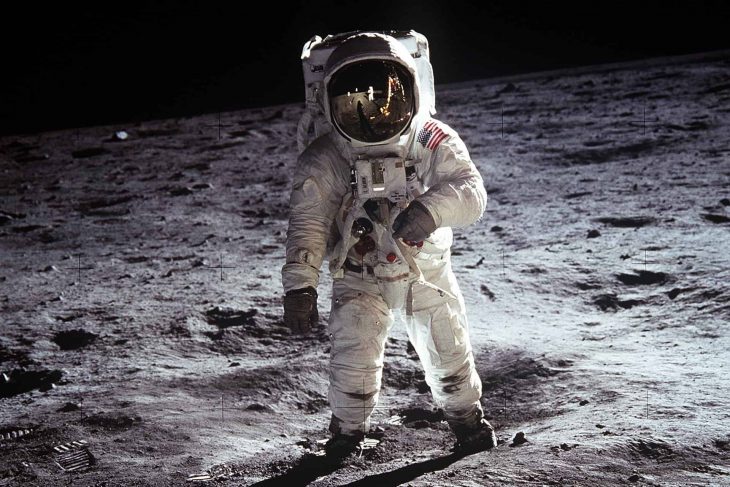
The Apollo 11 space mission achieved a “giant leap for mankind” when it landed humans safely on the moon and ended the space race between the US and Russia. While the thought of humans landing on the moon is a mind-blowing feat on its own, there are more interesting Apollo 11 facts that may just take you over the moon with joy. Read on to find more about this monumental space mission.
- Apollo 11 was the first mission that achieved a crewed moon landing.
- It took the spacecraft 76 hours to reach the moon.
- Neil Armstrong was the first person on the moon.
- Buzz Aldrin followed Armstrong 19 minutes later.
- The Apollo 11 spacecraft flew at 24,236 miles per hour.
- Apollo 11 was piloted by Neil Armstrong, Edwin “Buzz” Aldrin Jr., and Michael Collins.
- Michael Collins piloted the command module that orbited the moon.
- “Columbia”, the command module, was named after Christopher Columbus.
- The official launch date of Apollo 11 was July 16, 1969, while the moon landing date was July 20, 1969.
- Margaret Hamilton led the team that developed the software used for the Apollo missions.
- The rocket was called Saturn V.
- After Armstrong and Aldrin, 10 other people walked on the moon in succeeding missions.
- Apollo 11’s goal was just to land on the moon and return to Earth.
- The goal was set by US President John F. Kennedy in 1961.
- The flight crew communicated directly with the Mission Control Center based in Houston, Texas.
- There were five other missions that landed on the moon after Apollo 11.
- Apollo 11’s landing was broadcasted on live television.
- They landed on a rock-filled crater.
- The crew landed on the Pacific Ocean when they returned to Earth.
- They later arrived in Hawaii via the USS Hornet.
Apollo 11 Facts Infographics
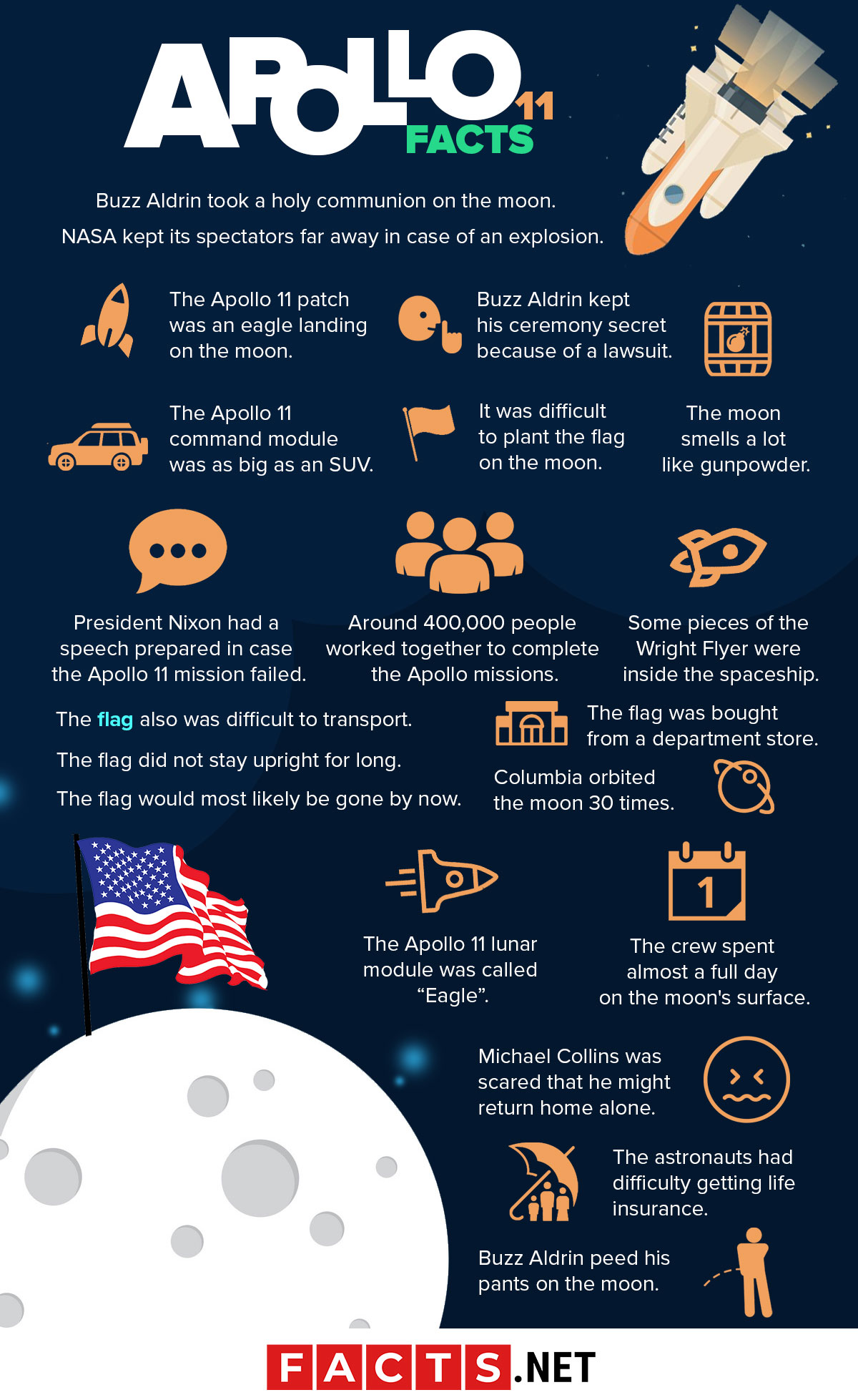
The Apollo 11 crew members were put on quarantine to prevent the spread of a "moon plague".
The scientists at NASA weren’t particularly sure if there were other life-forms that existed on the moon. Fearing the spread of an unknown moon-borne disease, the Apollo 11 crew members were quarantined for three weeks to avoid potential outbreaks of “moon germs” that they were uncertain of.
The practice of quarantine following lunar travels was also used for Apollo 12 and 14. After the Apollo 14 mission, they had sufficient knowledge that there are no signs of extraterrestrial life on the moon. Thus, they deemed quarantine as an unnecessary procedure.
The Apollo 11 patch was an eagle landing on the moon.
As is tradition for the Apollo missions, Apollo 11 crew member Michael Collins designed the Apollo 11 patch. He intended it to symbolize a peaceful landing of the United States on the moon.
The patch features a bald eagle landing on the moon’s surface with a distant picture of Earth in the background. The bald eagle symbolizes the United States, as it is the US’s national bird.
Buzz Aldrin took a holy communion on the moon.
One of the more interesting Apollo 11 facts is that it also held the first religious ritual on the moon. An elder at his Presbyterian Church at the time, crew member Buzz Aldrin performed a Christian communion on the moon, consuming some bread and wine.
During the ritual, Aldrin requested for a few moments of silence and thanksgiving. He ate the bread and poured out the wine from a small plastic container to a chalice prepared by his local pastor.
Buzz Aldrin kept his ceremony secret because of a lawsuit.
Because of the Apollo 8 Genesis reading lawsuit, Buzz Aldrin had to keep his communion comments more general. He also had to read his scripture off-air, reading a passage from the book of John. He later broadcasted a more general passage, Psalm 8:3-4, on their way back to Earth.
President Nixon had a speech prepared in case the Apollo 11 mission failed.
Given how little we knew about lunar travel then, there was a chance that the Apollo 11 astronauts would fail to return home. The speechwriter for the president, William Safire, prepared a speech for President Nixon in the event of a worst-case scenario.
The Apollo 11 space mission happened 66 years after the invention of the Wright Flyer.
In 1903, Wilbur and Orville Wright invented the Wright Flyer. It is the first motor-powered vehicle capable of sustained flight. Just 66 years later, in 1969, humans first stepped on the moon through the historic Apollo 11 space mission.
Some pieces of the Wright Flyer were inside the spaceship.
As an homage to the first motor-powered aircraft, the crew brought a piece of wood and fabric from the Wright Flyer inside of their spacecraft. Both the invention of the Wright Flyer and the Apollo 11 mission were monumental milestones in human flight.
Around 400,000 people worked together to complete the Apollo missions.
The Apollo 11 flight crew involved three people, but they could not have done it without the hard work of thousands of other people. NASA estimates that the workforce involved around 400,000 people working together to complete the Apollo missions. This includes scientists, engineers, health professionals, and programmers.
The moon smells a lot like gunpowder.
After spending some time on the moon’s surface, Armstrong and Aldrin’s space suits were covered in moon dust. Armstrong described the smell as those of wet ashes, while Aldrin likened it to the strong, pungent smell of spent gunpowder.
It was difficult to plant the flag on the moon.
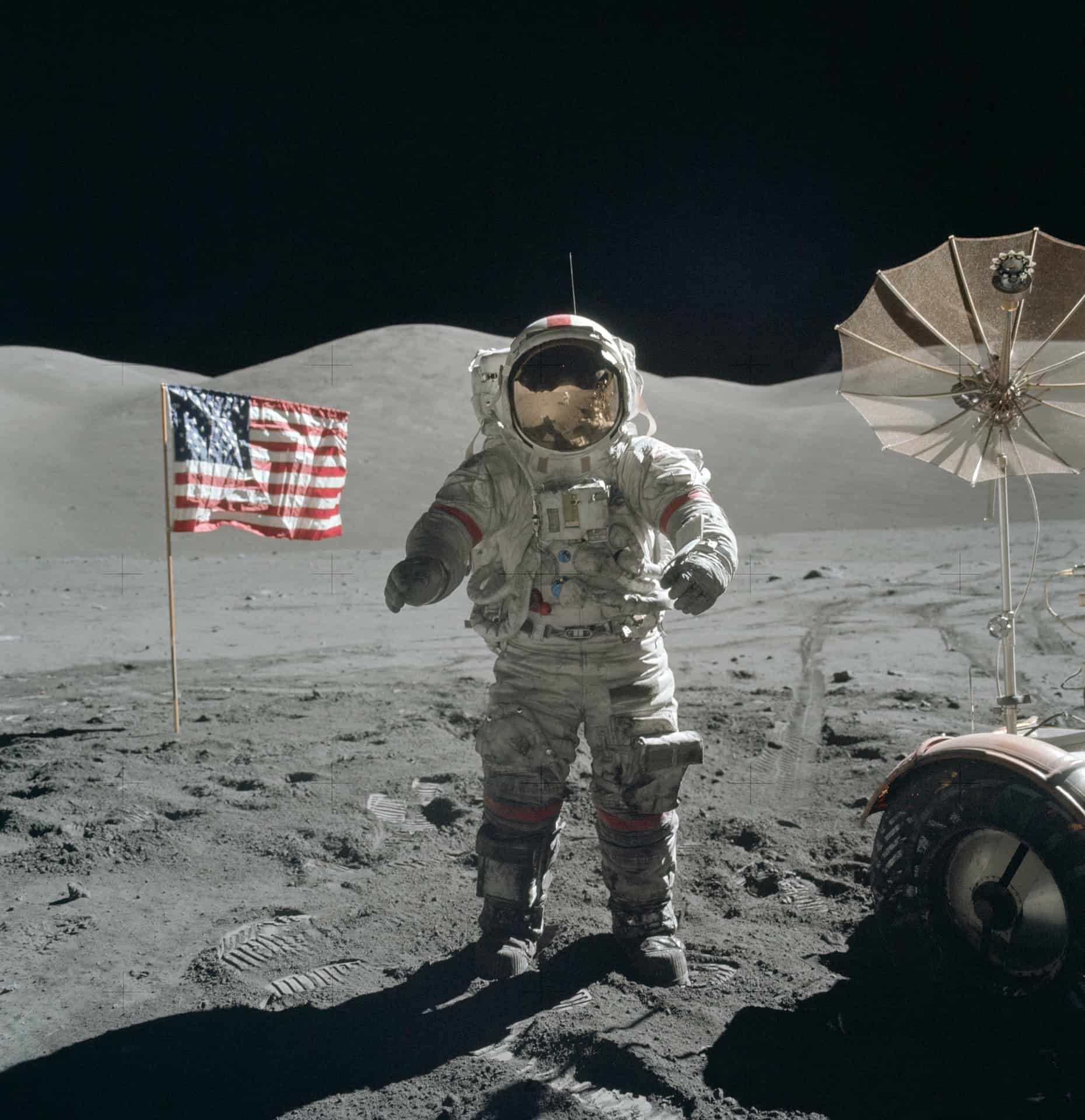
Although the moon had a fine and powdery outer surface that they left footprints on, underneath the soot was a hard and rocky ground. This made it difficult for the crew to plant the flagpole on the moon. Even with hammers made for lunar rock sampling, they only managed to plant the pole about seven inches (18 cm) deep.
The flag also was difficult to transport.
Bringing the flag along was not just as simple as keeping it in a bag or storing it inside the cabin. The flag had to be stored inside the lunar module’s ladder. It was protected from the heat by insulating materials and a metal shroud.
The flag did not stay upright for long.
Buzz Aldrin noted that the flag fell over as they were leaving the moon’s surface. It might have fallen over because of the power of the spacecraft’s exhaust.
The flag would most likely be gone by now.
Unlike the Earth, the moon doesn’t have a thick, protective atmosphere. Therefore, the ultraviolet rays from the sun could have faded the colors of the flag on the moon and turned the fabric white. Additionally, the harsh conditions may have already made the fabric brittle and fragile.
The flag was bought from a department store.
It was no doubt that the flag’s presence required additional complex design changes. However, the nylon flag itself tells a different story. NASA reported that a group of NASA secretaries bought the historic flag from Sears during their lunch break.
The Apollo 11 lunar module was called “Eagle”.
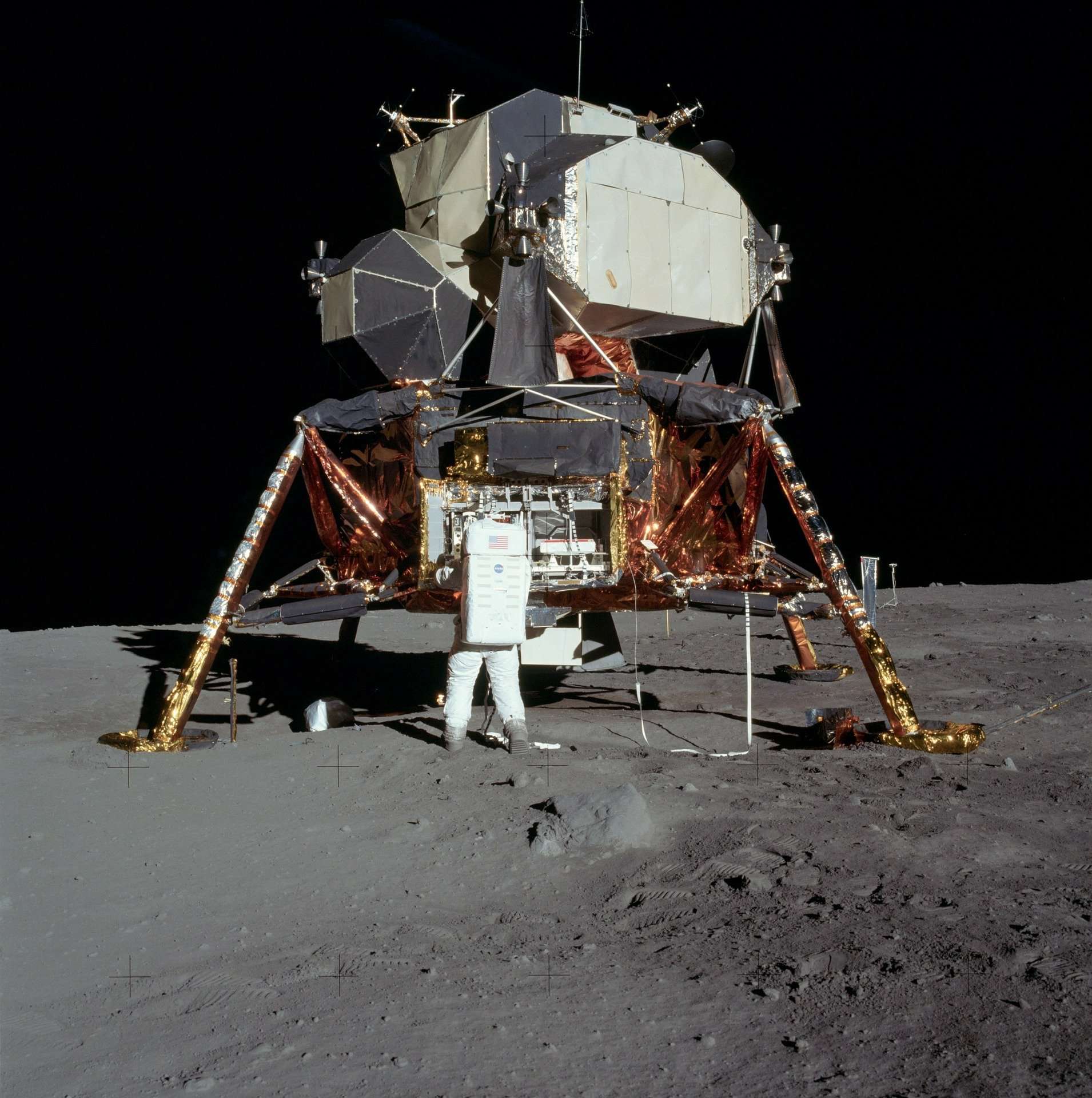
Upon the first ever moon landing, Neil Armstrong said the iconic line “The Eagle has landed.” This was because the moon lander he piloted was actually called “Eagle”, a reference to the bald eagle in their mission patch.
The crew spent almost a full day on the moon's surface.
Neil Armstrong and Buzz Aldrin spent a whopping 21 hours and 36 minutes on the surface of the moon. They spent almost three of these hours collecting lunar samples and setting up experiment packages. During this time, Michael Collins orbited around the moon alone.
Michael Collins was scared that he might return home alone.
Michael Collins flew the Apollo 11 command module around the moon as Armstrong and Aldrin explored the moon’s surface. He was in charge of retrieving the two safely back to Earth. The whole situation was riddled with uncertainty, so Collins was actually scared that grave mishaps might happen and he would return to Earth alone.
Columbia orbited the moon 30 times.
The command module Columbia, manned by Collins, flew around the moon 30 times.
The astronauts had difficulty getting life insurance.
Life insurance for astronauts is notoriously difficult to acquire, and the Apollo 11 astronauts can attest to this. To make up for a lack of life insurance, they signed hundreds of postcards for their families to sell, believing they would be valuable.
Buzz Aldrin peed his pants on the moon.
Buzz Aldrin reportedly urinated in his pants during his time on the moon’s surface. He and Armstrong were wearing diapers during their moon exploration. He explained to a Newseum crowd, “it was lonely as hell up there.”
It took more than three years to make the Apollo 11 space suit.
The Apollo 11 space suit is designed to withstand the lack of pressure in the vacuum of space. It also protects the astronaut against the sun’s harmful ultraviolet radiation. Any flaw in the design could potentially be fatal for the astronauts, so it was vital to make movement possible outside of the spacecraft while protecting the user at the same time. The production of the Apollo 11 space suit took three years.
The space suit was designed by a lingerie company.
Despite the harsh conditions in outer space, the Apollo 11 space suit was undoubtedly effective in protecting its wearers. Aldrin and Armstrong came back alive, after all. Their suits were created by the company Playtex, which is known to produce feminine undergarments and baby products. The space suit had 21 layers of fabric, with some layers being made out of the same material as Playtex’s bras.
Michael Collins almost did not make the cut.
In 1968, Michael Collins had a bone spur removed from his spine. The surgery would have prevented him from doing any spaceflights, but he fortunately recovered well. He was removed from his original scheduled mission, Apollo 8, and was instead placed in his monumental position at Apollo 11.
They littered on the moon.
To conserve fuel, the astronauts needed to travel light. As a result, they left a lot of their belongings on the moon. To lighten their load, they had to toss out any unnecessary baggage, such as sampling instruments, cameras, overshoes, and bags of their waste.
They brought symbols to represent humanity.
During the Apollo 11 space mission, the crew left behind symbols that represented humanity. Included here is a stainless steel plaque with these words engraved in capital letters, “Here men from the planet Earth first set foot upon the Moon July 1969, A.D. We came in peace for all mankind.”
Additionally, they also brought a small silicon disc that contained messages of good will from 73 world leaders. The disc also had the names of various US government leaders and important persons from NASA.
Buzz Aldrin almost forgot to place the Apollo 11 goodwill messages on the moon.
The disc of goodwill messages from the 73 world leaders was only around the size of a 50-cent coin and could easily be forgotten, and it almost was. The disc was inside Buzz Aldrin’s shoulder pocket, and it was Neil Armstrong who reminded him about it as they were about to return to the lunar module.
The Apollo 11 crew left behind a patch honoring the Apollo 1 crew.
The previous missions were far from forgotten. On January 27, 1967, a cabin fire occurred during Apollo 1’s launch exercise and never took off. The Apollo 1 fire tragically took out the crew members Virgil “Gus” Grissom, Edward White II, and Roger Chaffee. In their honor, the Apollo 11 crew left behind a Apollo 1 patch on the moon.
They also honored Russian cosmonauts.
The Apollo 11 astronauts left behind medals in commemoration of the Russian cosmonauts Vladimir Komarov and Yuri Gagarin. Komarov was the first man to die on a mission to space, while Gagarin was the first human in space.
They also left a gold olive branch on the moon.
Among the objects they ceremonially left on the moon is a small golden emblem of an olive branch. The olive branch has been used for ages as a symbol of peace, further cementing the idea that they “came in peace for all mankind”.
The footprints are still there.
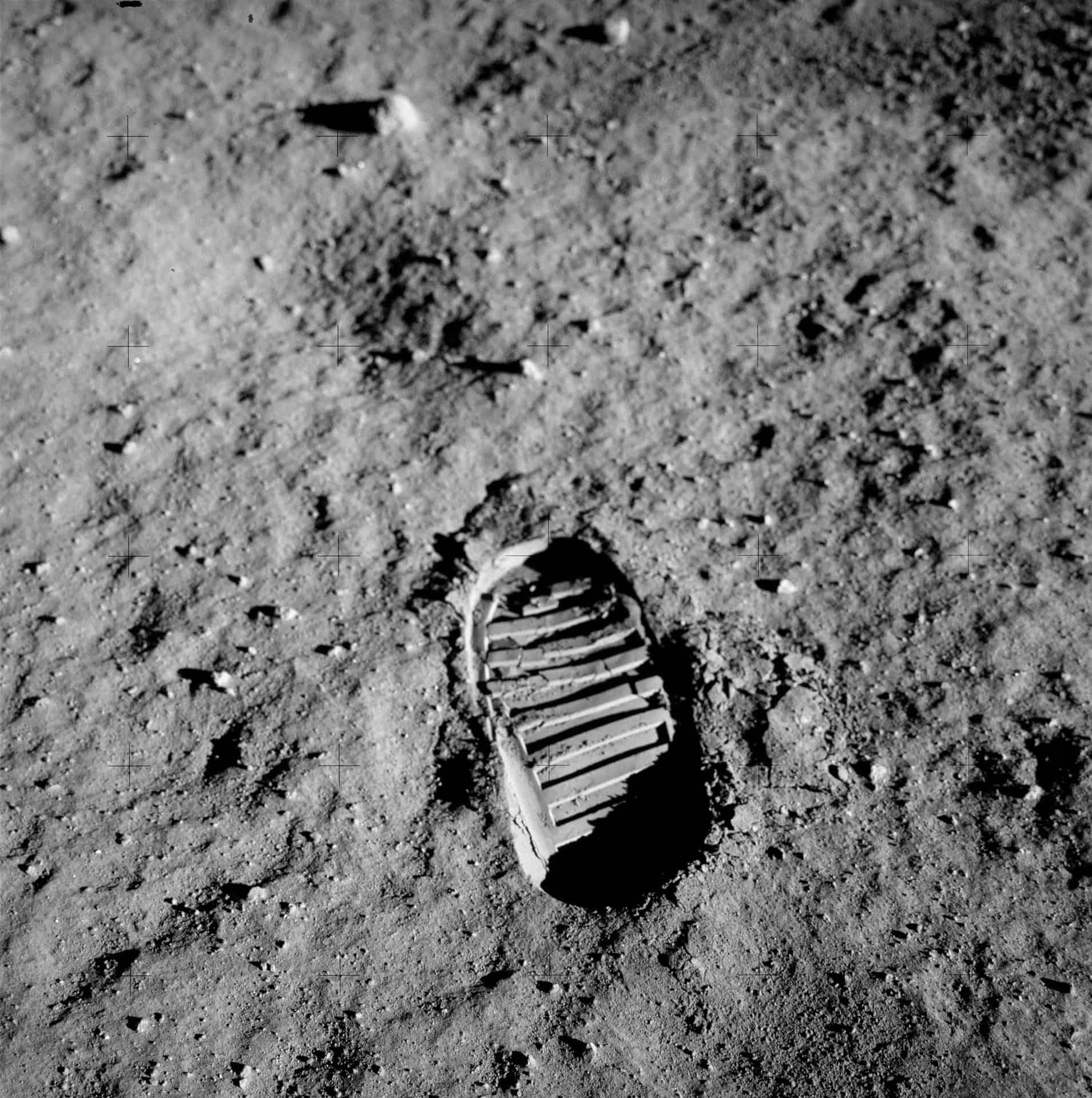
Unlike Earth, the moon doesn’t have a thick atmosphere and strong winds, so the soil there experiences minimal erosions. Because of this, the footprints are likely still there and are not expected to disappear any time soon.
The Apollo 11 crew ate packaged meat and vegetables during the flight.
Due to the sheer distance between the moon and Earth, travelling to the moon cannot be accomplished overnight. Therefore, astronauts needed to eat specially-packed space food for their meals. These meals were individually packaged in plastic and were eaten with a spoon. The astronauts also had some backup food to be eaten through their helmet ports in case something went wrong and they cannot take off their pressurized suits.
Apollo 11 did not land at the planned landing site.
With the fuel tank almost dry, Neil Armstrong landed the lunar module Eagle around 4 mi (6 km) away from the actual planned landing site.
Armstrong first walked on the moon 6 hours and 39 minutes after landing.
After the moon landing, Armstrong and Aldrin first had to check all the systems and components extensively to ensure their success and, more importantly, their survival. They had to ensure that everything was working as it should so that they could return home.
The crew had to accomplish a customs form after landing.
When the Apollo 11 crew arrived in Hawaii, they had to fill out a customs form as with any other tourist. They had to declare where they came from, and they listed that they started at Cape Kennedy, Florida, and had a stopover to the moon.
They also had to declare their cargo.
On their way back home, they took lunar specimens with them, along with their equipment. Although they just came from a perilous mission on the moon, they still had to declare all of it to customs.
They collected a lot of lunar material to take back to Earth.
The Apollo 11 crew collected around 47.5 lb (21.5 kg) worth of moon rocks and dust to take back to Earth. NASA scientists used these samples to study the composition of the moon and look for possible evidence of extraterrestrial life.
Scientists performed animal experiments with the moon rocks.
Scientists weren’t sure whether or not the lunar material that the Apollo 11 crew brought back were safe for humans or other terrestrial beings, so they had to test them in a controlled environment and observe how animals react to them. The experiments were important in making sure that the moon samples were safe to keep on Earth. Some of these experiments included feeding the moon rocks to cockroaches and exposing other plants and animals to the moon dust.
A felt-tip pen played a crucial role in the mission.
The first moon landing would not have been successful without the help of a trusty felt-tip pen. The Eagle’s circuit breaker switch broke off during the moon landing. This switch was crucial for their return to Earth. Aldrin inserted the pen to where the switch was supposed to be, and it worked as good as the switch.
They were low on gas when they landed on the moon.
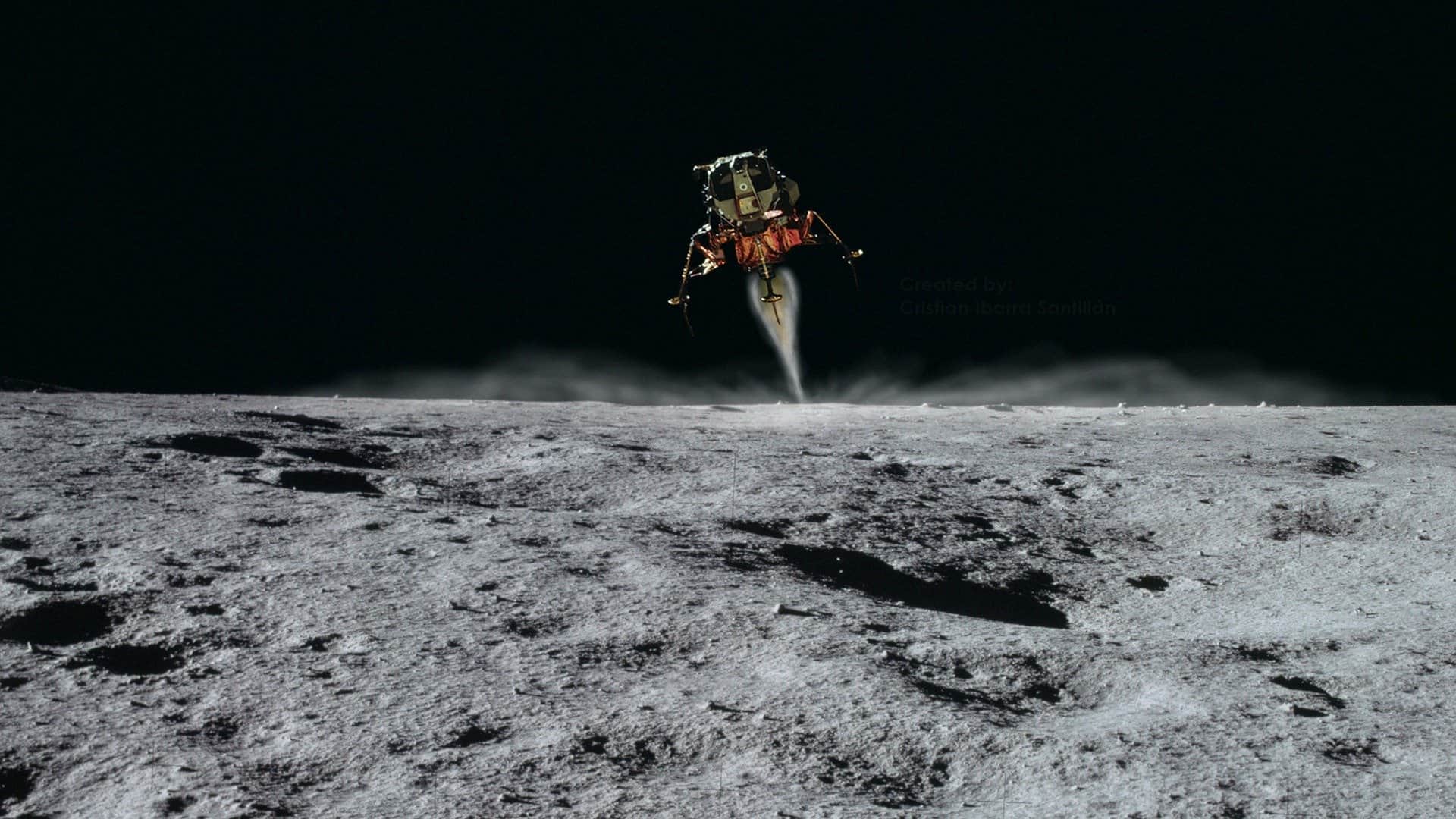
As the Eagle was descending to the moon’s surface, NASA’s capsule communicator Charlie Duke informed the crew that they were running low on fuel and only had a minute to make it to the surface. Through their efforts, they landed the Eagle safely with only about 15 seconds of descent fuel left to spare.
Neil Armstrong’s heart rate rose to 150 during their perilous descent.
During the whole Apollo 11 space mission, the crew had their vital signs recorded. As the commander, Neil Armstrong had a lot on his hands. Although Armstrong was normally calm for the whole mission, having an average heart rate of 71 beats per minute, it spiked up near the completion of the moon landing.
At the time of their descent, computer alarms began to flare up, but Mission Control explained that it was still safe for them to continue. That wasn’t their only problem, as they were running low on gas. This caused Armstrong’s heart to beat more than twice his average heart rate at 150 bpm. His heart rate began to normalize minutes after landing safely.
Your smartphone is more powerful than the computers involved in the mission.
The Apollo computers were the cutting edge technology at the time of the launch. NASA purchased around 60% of the integrated circuits manufactured in the US in the 1960s. Integrated circuits were a fairly new technology at the time, and their use in the Apollo 11 space mission helped legitimize them and earn their place in modern technology.
The computers used for the Apollo missions only had the capacity to store temporary data of up to 32,768 bits. This memory, lost upon shutting down the power source, is called Random Access Memory, or RAM. In contrast, newer phone models normally can hold around 4GB of RAM. This is equivalent to 34,359,738,368 bits, more than a million times more than the Apollo computers.
The Apollo computers also had 72KB of programmed, unchangeable memory. That’s 589,824 bits of Read Only Memory or ROM. To compare, an iPhone can have up to 512GB of ROM, equivalent to 4,398,046,511,104 bits of data. Additionally, your phone has a faster, more powerful processing power than the computers that made it possible for humans to land on the moon.
Neil Armstrong’s “one small step” was above a three-foot hop.
Perhaps Neil Armstrong’s most quoted line is the one he said upon humanity’s very first step on the moon’s surface: “That’s one small step for [a] man, one giant leap for mankind.” However, his first step was really closer to a leap. Armstrong took a giant leap of 3.5 ft (1 m) from the ladder to the moon’s surface.
Aldrin had to make sure they wouldn’t lock themselves out of the lunar module.
The lunar module Eagle didn’t have a handle on the outer side of the door. Fearing the possibility of being locked outside the lunar module, Buzz Aldrin had to make sure that the door stayed open until they could get in again.
There were a total of 20 Apollo missions planned.
NASA scheduled 20 Apollo missions, but they cancelled four of them due to various reasons. Apollo missions 2, 18, 19, and 20 were cancelled due to factors including accidents, technical changes, and budget cuts.
The Apollo program was costly.
The Apollo program achieved astronomical feats, but it also came with an outworldly cost. Factoring in all the resources, manpower, and pieces of equipment, the Apollo program cost around 28 billion US dollars. Adjusted for inflation, the cost would be close to around 288.1 billion US dollars.
A Soviet spacecraft crashed on the moon while Armstrong and Aldrin were there.
Luna 15, an unmanned Soviet spacecraft, crashed on the moon’s surface a day after the moon landing date. On July 21, 1969, right as Armstrong and Aldrin were finishing up with their moonwalk, the spacecraft crashed 530 mi (853 km) from the Sea of Tranquility. It was far enough that the astronauts would not have spotted it.
President Kennedy was not interested in space.
US President John F. Kennedy was known for giving his roaring speeches about sending humans on the moon. In 1961, he set the goal to send humans on the moon and back to Earth at the end of the decade. It turns out, however, that he was more concerned about beating the Soviets than studying about space. “I’m not that interested in space,” Kennedy explained in a 1962 meeting with NASA.
Buzz Aldrin had to file an expense report for the Apollo 11 flight.
It turns out that stellar accomplishments don’t excuse you from something as mundane as filling out an expense report. Buzz Aldrin, for his moon mission, requested for a $33.31 reimbursement for his travel expenses to Cape Kennedy and back.
The Apollo 11 command module was as big as an SUV.
The command module Columbia, responsible for transporting the astronauts to the moon’s orbit and back to earth, never touched the moon’s surface. It was roughly around the size of an SUV or a large car. It did not have much room for moving about, but it was big enough for the three astronauts to travel home safely.
NASA kept its spectators far away in case of an explosion.
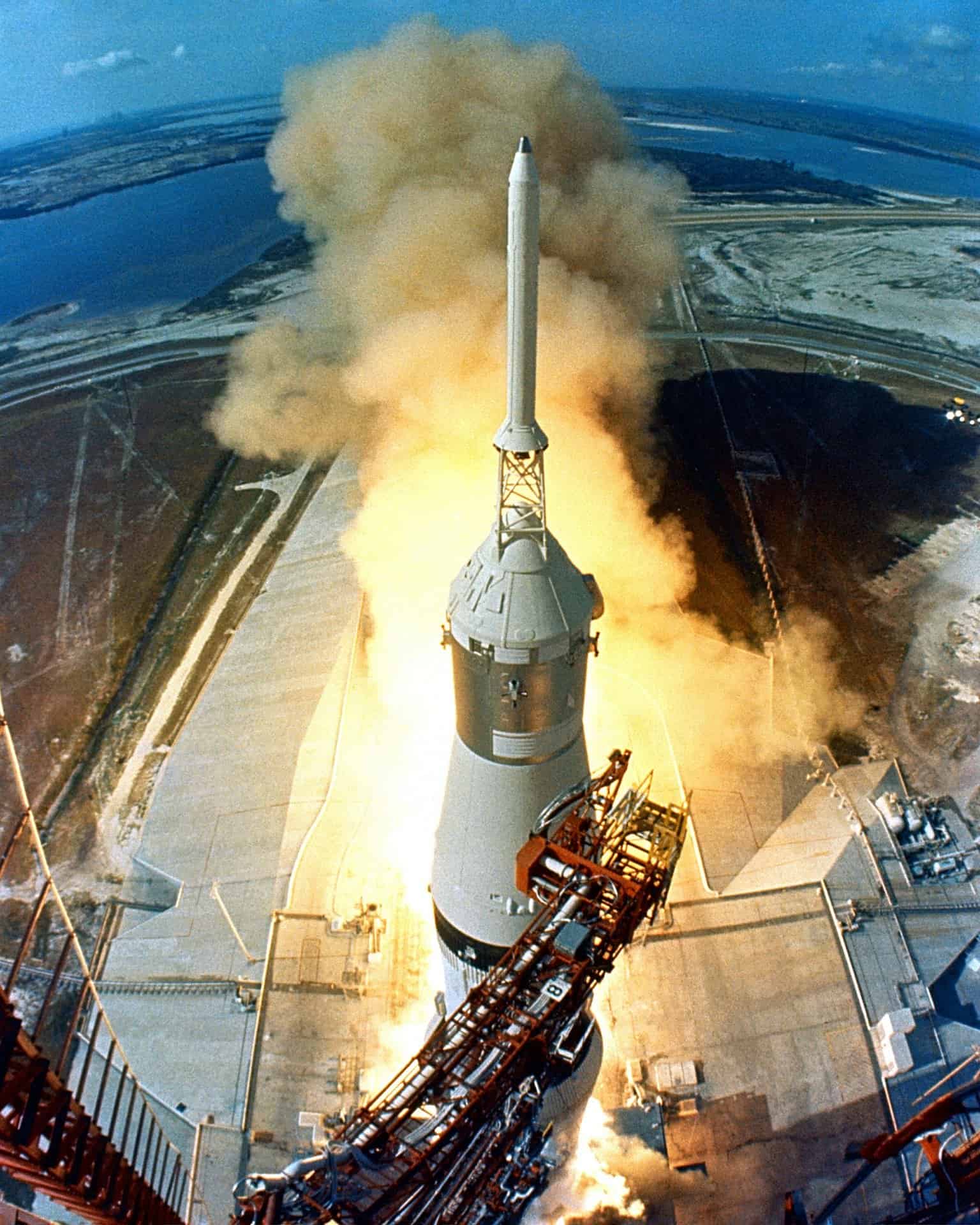
The launch was broadcasted on live television, but some people preferred to see the historic event up-close and personal. NASA took safety very seriously and seated their spectators around 3.5 mi (5.6 km) from the launchpad.
Was this page helpful?
Our commitment to delivering trustworthy and engaging content is at the heart of what we do. Each fact on our site is contributed by real users like you, bringing a wealth of diverse insights and information. To ensure the highest standards of accuracy and reliability, our dedicated editors meticulously review each submission. This process guarantees that the facts we share are not only fascinating but also credible. Trust in our commitment to quality and authenticity as you explore and learn with us.
